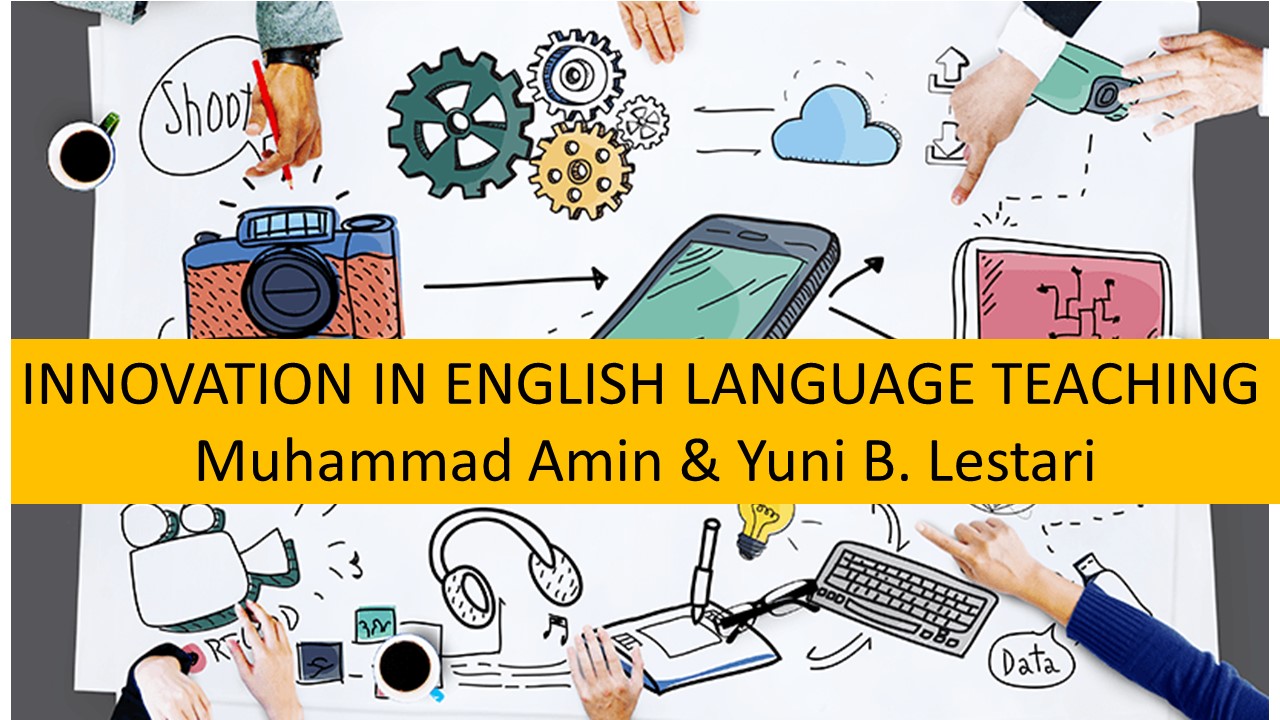
Professional Education Course
This course provides the students with the knowledge and skills for professional education in teaching English to elementary or high school students. These course materials include the concept of the profession, professional, policies of professional teachers in Indonesia, their roles, and professional etiquette. The learning outcomes are the students are able to write a project of observation results of English professional teachers' activities in junior or senior high schools. The learning activities are lecturing, presentation, observation, and project work.

Essay Writing
The prerequisite of this course is paragraph writing. It provides the students with the knowledge and skills to write essays in English. At the end of this course, the students are able to write good essays in the following genre:
- Descriptive essay
- Cause and Effect Essay
- Comparison and contrast essay
- Recount Essay
The materials include paragraph development, coherence and cohesion with cohesive devices, essay structures, and local and global issues. The teaching and learning activities are conducted using blended learning. The students should enroll in this LMS. You are failed if you are not registered in this LMS and complete less than 75% of the writing tasks. The learning activities and materials are posted to this LMS and should be done to complete the required learning tasks for the online learning mode and face-to-face meetings in person inside the classroom. Each writing activity of the essay will follow the steps, namely outlining, drafting, writing, editing, and rewriting. Before joining the face-to-face meeting, each student should read and complete the learning tasks in LMS. Formative assessment tasks are the primary sources of evaluation data for this course.

Vocabulary Building
This course aims to provide students an opportunity to explore and experience basic concepts of vocabularybuilding (part of speech, words with prefixes, words with suffixes, words with both prefix and suffix, antonym, synonym, homophone, homograph, and topical vocabulary) and the use of vocabulary in context. Within 16 meetings, the students will do individual work, pair work, as well as group work covering text analysis, vocabulary games and challenges, and some exercises in word building and sentence formation in written or oral context.

INTERMEDIATE ENGLISH GRAMMAR (KSP 2023.1)
LEARNING OBJECTIVES (LO):
After attending all required meetings, participating actively in the discussion, and doing all tasks assigned in this course, the students are expected to be able to master intermediate English Grammar needed for both presenting high-school (SMU) structure materials and coping with their studies.
ORGANIZATION & TOPICS:
This book consists of five units, each of which focuses on a particular point of English Grammar. Every unit systematically consists of a PRE-TEST (used as a warming-up activity before the presentation of the main materials), GRAMMAR EXPLANATION & EXERCISES, SELF-ASSESSMENT, REFLECTION ON LEARNING, and a POST-TEST (to measure students’ mastery). The explanation and some exercises in this course material are taken and adapted from various English grammar sources; thus, any confusion caused by the explanations can be addressed by consulting the original sources as mentioned in the references in every unit. The topics include: Modifiers (A – F), Passive Voice (A – G), Degrees of Comparisons (A-G), Conditional Sentences (A – G) and Adverbial Clauses in Complex Sentences (A – D)

Literal Reading
Literal reading is
pre-requisite to this course. Interpretative reading is intended to equip
students of lower intermediate level with the ability to understand, extract,
analyze and evaluate ideas or information contained in given texts. Through
this course, students will be exposed to learn how to convey the unstated
meaning of reading texts, differentiate facts from opinions, advance their
vocabulary repository and write their critical insights about what they read.
They will also learn to take the gist out of the texts in given contexts. After
taking part in the course, students are expected to develop excellent in-depth
knowledge of interpretive reading so that ultimately they will become confident
and proficient readers

